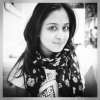Ruchi Kumar speaks to the man behind the book that identifies the mathematical genius of The Simpsons
Book: The Simspons And Their Mathematical Secrets
Author: Simon Singh
Publisher: Bloomsbury
Pages: 399
Price: Rs699
On the face of it, there’s little that connects the hit TV show The Simpsons and mathematics. But not if you believe Simon Singh and his latest books The Simpsons And Their Mathematical Secrets.
“I think it is cooler to be a geek nowadays, but I still think that the teenager who loves maths and computers is often not part of the in-crowd,” says Singh, a popular science writer best known for his works on the Fermat’s last theorem.
Being a former CERN physicist, it didn’t take Singh very long to identify the mathematical geniuses of the popular animated TV show, The Simpsons. “I had been watching The Simpsons for about ten years before I noticed that The Wizard of Evergreen Terrace contains a reference to Fermat’s Last Theorem,” narrates Singh who has earlier written a book on Fermat’s Last Theorem, one the most confounding problems of any math geek’s life. “The reference is very clever, so it was clear that one of the writers had a strong interest in mathematics,” he explains.
On further investigation, Singh found that not only did a number of writers on the show have mathematical backgrounds, but also that they had all been hiding mathematics in various episodes of The Simpsons. One of television’s longest running series had become a scavenger field for its prolific line up of writers, much to the delight of its equally nerdy audiences.
“First, I watched lots of episodes of the show, even though I had seen most of them before. I often watched the shows with DVD commentaries switched on, as the writers sometimes highlight the maths in their commentary,” Singh says while explaining his highly entertaining operation of research for the book. Because, of course, no scientist should ever write a book without researching the subject thoroughly. “I also talked to others who had been looking at the maths in The Simpsons, such as two professors in America who have used examples from the show in their college lectures. Finally, I spent a week with the writers, which was invaluable. Not only did they highlight past references, but they also told me about references in upcoming episodes,” he adds.
Singh’s eventual book, The Simpsons... explores all the big and little moments of math humour and science punnery on the much loved TV show. In the book, Singh unveils episodes with hidden messages weaved into the storyline and narration by the writers. He profiles the writers themselves, who all have an illustrious academic history and association with some the top universities of the world. “Loving maths is still a minority sport,” says Singh. “Which is why it is so important that the writers of The Simpsons are proud to be identified as mathematicians. By exhibiting geek pride, they help teen geeks take pride in their own techy passions,” he adds.
“The writers have been very supportive and generous with their time, and have said some very kind things about the book. Al Jean even said that he liked the book so much that he bought a copy for his mother,” shares Singh. That obviously makes Singh very happy. “I always want the subjects of my books to like what I have written … unless I am writing about alternative therapists,” quips Singh, whose article on chiropractors earned him their ire and a law suit.
Although, usually a writer on all things science, Singh himself is a ‘pop-culture’ celebrity of the science community. He is also known for his YouTube show on an online maths project called Numberphile which has received millions of views. “I am increasingly surprised at how many people have come to know me through Youtube. So now people tap me on the shoulder and say, “Hey, are you the Numberphile guy?”
Singh’s books, although on niche subjects, have had a wider appeal. This could mark a turning tide with academic acceptance in popular culture. Singh points out, “Although there may be shows such as Doctor Who and Star Trek that mention mathematics, these references are few and far between. On the other hand, The Big Bang Theory is full of maths and physics, but that is an inherent part of the storyline, so it is not a surprise.”
“The wonderful thing about The Simpsons is that it is not a show about mathematics, yet it contains lots of equations,” he says.
![submenu-img]() MBOSE 12th Result 2024: HSSLC Meghalaya Board 12th result declared, direct link here
MBOSE 12th Result 2024: HSSLC Meghalaya Board 12th result declared, direct link here![submenu-img]() Apple iPhone 14 at ‘lowest price ever’ in Flipkart sale, available at just Rs 10499 after Rs 48500 discount
Apple iPhone 14 at ‘lowest price ever’ in Flipkart sale, available at just Rs 10499 after Rs 48500 discount![submenu-img]() Meet man who left high-paying job, built Rs 2000 crore business, moved to village due to…
Meet man who left high-paying job, built Rs 2000 crore business, moved to village due to…![submenu-img]() Meet star, who grew up poor, identity was kept hidden from public, thought about suicide; later became richest...
Meet star, who grew up poor, identity was kept hidden from public, thought about suicide; later became richest...![submenu-img]() Watch: Ranbir Kapoor recalls 'disturbing' memory from his childhood in throwback viral video, says 'I was four years...'
Watch: Ranbir Kapoor recalls 'disturbing' memory from his childhood in throwback viral video, says 'I was four years...'![submenu-img]() DNA Verified: Is CAA an anti-Muslim law? Centre terms news report as 'misleading'
DNA Verified: Is CAA an anti-Muslim law? Centre terms news report as 'misleading'![submenu-img]() DNA Verified: Lok Sabha Elections 2024 to be held on April 19? Know truth behind viral message
DNA Verified: Lok Sabha Elections 2024 to be held on April 19? Know truth behind viral message![submenu-img]() DNA Verified: Modi govt giving students free laptops under 'One Student One Laptop' scheme? Know truth here
DNA Verified: Modi govt giving students free laptops under 'One Student One Laptop' scheme? Know truth here![submenu-img]() DNA Verified: Shah Rukh Khan denies reports of his role in release of India's naval officers from Qatar
DNA Verified: Shah Rukh Khan denies reports of his role in release of India's naval officers from Qatar![submenu-img]() DNA Verified: Is govt providing Rs 1.6 lakh benefit to girls under PM Ladli Laxmi Yojana? Know truth
DNA Verified: Is govt providing Rs 1.6 lakh benefit to girls under PM Ladli Laxmi Yojana? Know truth![submenu-img]() Alia Bhatt wears elegant saree made by 163 people over 1965 hours to Met Gala 2024, fans call her ‘princess Jasmine’
Alia Bhatt wears elegant saree made by 163 people over 1965 hours to Met Gala 2024, fans call her ‘princess Jasmine’![submenu-img]() Jr NTR-Lakshmi Pranathi's 13th wedding anniversary: Here's how strangers became soulmates
Jr NTR-Lakshmi Pranathi's 13th wedding anniversary: Here's how strangers became soulmates![submenu-img]() Streaming This Week: Heeramandi, Shaitaan, Manjummel Boys, latest OTT releases to binge-watch
Streaming This Week: Heeramandi, Shaitaan, Manjummel Boys, latest OTT releases to binge-watch![submenu-img]() Remember Ayesha Kapur? Michelle from Black, here's how actress, nutrition coach, entrepreneur looks after 19 years
Remember Ayesha Kapur? Michelle from Black, here's how actress, nutrition coach, entrepreneur looks after 19 years![submenu-img]() Remember Heyy Babyy's cute 'Angel' Juanna Sanghvi? 20 year-old looks unrecognisable now, fans say 'her comeback will...'
Remember Heyy Babyy's cute 'Angel' Juanna Sanghvi? 20 year-old looks unrecognisable now, fans say 'her comeback will...'![submenu-img]() Haryana Political Crisis: Will 3 independent MLAs support withdrawal impact the present Nayab Saini led-BJP government?
Haryana Political Crisis: Will 3 independent MLAs support withdrawal impact the present Nayab Saini led-BJP government?![submenu-img]() DNA Explainer: Why Harvey Weinstein's rape conviction was overturned, will beleaguered Hollywood mogul get out of jail?
DNA Explainer: Why Harvey Weinstein's rape conviction was overturned, will beleaguered Hollywood mogul get out of jail?![submenu-img]() What is inheritance tax?
What is inheritance tax?![submenu-img]() DNA Explainer: What is cloud seeding which is blamed for wreaking havoc in Dubai?
DNA Explainer: What is cloud seeding which is blamed for wreaking havoc in Dubai?![submenu-img]() DNA Explainer: What is Israel's Arrow-3 defence system used to intercept Iran's missile attack?
DNA Explainer: What is Israel's Arrow-3 defence system used to intercept Iran's missile attack?![submenu-img]() Meet star, who grew up poor, identity was kept hidden from public, thought about suicide; later became richest...
Meet star, who grew up poor, identity was kept hidden from public, thought about suicide; later became richest...![submenu-img]() Watch: Ranbir Kapoor recalls 'disturbing' memory from his childhood in throwback viral video, says 'I was four years...'
Watch: Ranbir Kapoor recalls 'disturbing' memory from his childhood in throwback viral video, says 'I was four years...'![submenu-img]() This superstar was in love with Muslim actress, was about to marry her, relationship ruined after death threats from..
This superstar was in love with Muslim actress, was about to marry her, relationship ruined after death threats from..![submenu-img]() Meet Madhuri Dixit’s lookalike, who worked with Akshay Kumar, Govinda, quit films at peak of career, is married to…
Meet Madhuri Dixit’s lookalike, who worked with Akshay Kumar, Govinda, quit films at peak of career, is married to… ![submenu-img]() Meet former beauty queen who competed with Aishwarya, made debut with a superstar, quit acting to become monk, is now..
Meet former beauty queen who competed with Aishwarya, made debut with a superstar, quit acting to become monk, is now..![submenu-img]() IPL 2024: Jake Fraser-McGurk, Abishek Porel power DC to 20-run win over RR
IPL 2024: Jake Fraser-McGurk, Abishek Porel power DC to 20-run win over RR![submenu-img]() SRH vs LSG, IPL 2024: Predicted playing XI, live streaming details, weather and pitch report
SRH vs LSG, IPL 2024: Predicted playing XI, live streaming details, weather and pitch report![submenu-img]() IPL 2024: Here’s why CSK star MS Dhoni batted at No.9 against PBKS
IPL 2024: Here’s why CSK star MS Dhoni batted at No.9 against PBKS![submenu-img]() SRH vs LSG IPL 2024 Dream11 prediction: Fantasy cricket tips for Sunrisers Hyderabad vs Lucknow Super Giants
SRH vs LSG IPL 2024 Dream11 prediction: Fantasy cricket tips for Sunrisers Hyderabad vs Lucknow Super Giants![submenu-img]() Watch: Kuldeep Yadav, Yuzvendra Chahal team up for hilarious RR meme, video goes viral
Watch: Kuldeep Yadav, Yuzvendra Chahal team up for hilarious RR meme, video goes viral![submenu-img]() Not Alia Bhatt or Isha Ambani but this Indian CEO made heads turn at Met Gala 2024, she is from...
Not Alia Bhatt or Isha Ambani but this Indian CEO made heads turn at Met Gala 2024, she is from...![submenu-img]() Man makes Lord Hanuman co-litigant in plea, Delhi High Court asks him to pay Rs 100000…
Man makes Lord Hanuman co-litigant in plea, Delhi High Court asks him to pay Rs 100000…![submenu-img]() Four big dangerous asteroids coming toward Earth, but the good news is…
Four big dangerous asteroids coming toward Earth, but the good news is…![submenu-img]() Isha Ambani's Met Gala 2024 saree gown was created in over 10,000 hours, see pics
Isha Ambani's Met Gala 2024 saree gown was created in over 10,000 hours, see pics![submenu-img]() Indian-origin man says Apple CEO Tim Cook pushed him...
Indian-origin man says Apple CEO Tim Cook pushed him...







































)









)
)
)
)
)
)